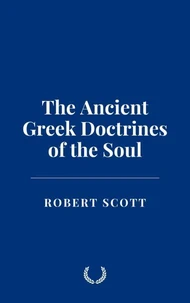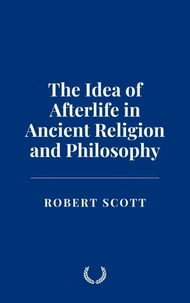The Problem of Truth in the History of Philosophy
Par :Formats :
Disponible dans votre compte client Decitre ou Furet du Nord dès validation de votre commande. Le format ePub est :
- Compatible avec une lecture sur My Vivlio (smartphone, tablette, ordinateur)
- Compatible avec une lecture sur liseuses Vivlio
- Pour les liseuses autres que Vivlio, vous devez utiliser le logiciel Adobe Digital Edition. Non compatible avec la lecture sur les liseuses Kindle, Remarkable et Sony
 , qui est-ce ?
, qui est-ce ?Notre partenaire de plateforme de lecture numérique où vous retrouverez l'ensemble de vos ebooks gratuitement
Pour en savoir plus sur nos ebooks, consultez notre aide en ligne ici
- FormatePub
- ISBN8230716655
- EAN9798230716655
- Date de parution11/02/2025
- Protection num.pas de protection
- Infos supplémentairesepub
- ÉditeurIndependently Published
Résumé
The concept of truth has been a central preoccupation of philosophy and theology since their inception. The question of what constitutes truth, how it can be known, and how it relates to the human experience of the world has shaped intellectual traditions for millennia. In classical thought, truth was often understood not merely as a static fact or correspondence to reality, but as a dynamic and foundational principle that governed both the cosmos and human existence.
The nature of truth in this context was not just a matter of intellectual curiosity but one of profound metaphysical and theological significance, influencing everything from the structure of reality itself to the very relationship between the divine and the human.
The nature of truth in this context was not just a matter of intellectual curiosity but one of profound metaphysical and theological significance, influencing everything from the structure of reality itself to the very relationship between the divine and the human.
The concept of truth has been a central preoccupation of philosophy and theology since their inception. The question of what constitutes truth, how it can be known, and how it relates to the human experience of the world has shaped intellectual traditions for millennia. In classical thought, truth was often understood not merely as a static fact or correspondence to reality, but as a dynamic and foundational principle that governed both the cosmos and human existence.
The nature of truth in this context was not just a matter of intellectual curiosity but one of profound metaphysical and theological significance, influencing everything from the structure of reality itself to the very relationship between the divine and the human.
The nature of truth in this context was not just a matter of intellectual curiosity but one of profound metaphysical and theological significance, influencing everything from the structure of reality itself to the very relationship between the divine and the human.

















